Pennsylvania private clubs must adhere to strict PLCB regulations and state laws, ensuring legal compliance and proper governance. These rules govern licensing, operations, and member conduct to maintain order and safety within club premises.
PLCB Regulations for Private Clubs
Pennsylvania private clubs must comply with licensing requirements, operational rules, and prohibited activities set by the PLCB, ensuring adherence to state laws and maintaining proper record-keeping practices.
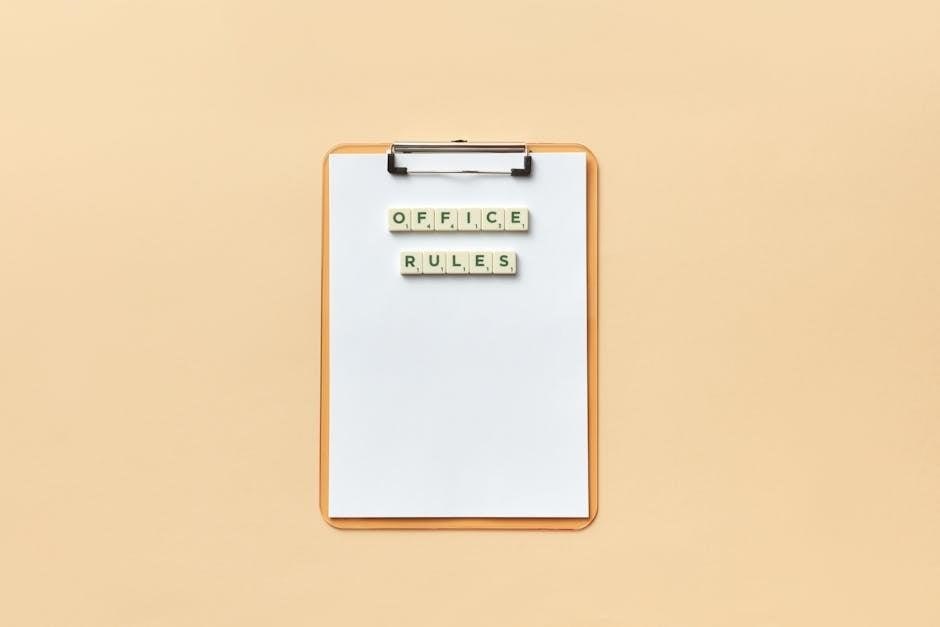
Licensing Requirements for Private Clubs
Private clubs in Pennsylvania must obtain a valid license from the PLCB to legally operate. The licensing process involves submitting detailed applications, paying fees, and meeting specific requirements. Clubs must prove they are organized for bona fide purposes, such as social, fraternal, or recreational activities. Renewal applications must be filed before the current license expires to avoid penalties. The PLCB reviews each application to ensure compliance with state liquor laws and regulations. Failure to meet these requirements can result in denied applications or revoked licenses, impacting the club’s ability to serve alcohol and operate legally.
Operational Rules and Restrictions
Pennsylvania private clubs must follow specific operational rules set by the PLCB. Clubs are restricted to serving alcohol only to members and their guests, with proper identification required for entry; Operating hours are regulated, and clubs must not permit illegal activities, such as gambling, on premises. The bar area is restricted to individuals aged 21 or older, and non-members are generally prohibited from accessing club facilities. Clubs must adhere to health and safety standards, maintain accurate records, and ensure all activities align with their bylaws and state liquor laws. Non-compliance can lead to penalties, fines, or license revocation.
Penalties for Non-Compliance with PLCB Regulations
Non-compliance with PLCB regulations can result in severe penalties, including fines, license suspension, or revocation. Clubs violating rules, such as allowing illegal gambling or serving alcohol to minors, face immediate enforcement actions. Repeat offenses may lead to harsher penalties, including loss of liquor licensing privileges. The PLCB enforces these measures to maintain legal standards and public safety. Clubs must ensure strict adherence to all regulations to avoid financial and operational consequences, as non-compliance can jeopardize their ability to operate effectively.
Legal Compliance and State Laws
Adhering to Pennsylvania state laws and PLCB regulations is essential for private clubs to maintain legal standing and avoid penalties. Clubs must comply with the Pennsylvania Liquor Code and ensure all operations align with state mandates to prevent legal repercussions and maintain smooth functioning.
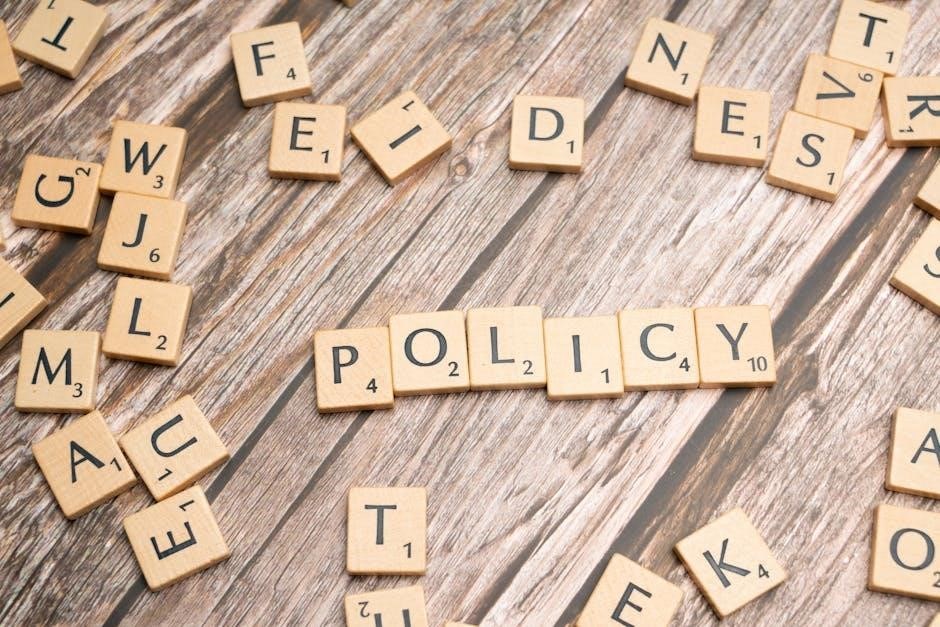
Overview of Pennsylvania State Liquor Laws
Pennsylvania state liquor laws, governed by the Pennsylvania Liquor Control Board (PLCB), regulate the manufacture, sale, and distribution of alcohol. Private clubs must comply with these laws, which include restrictions on alcohol sales, operational hours, and membership requirements. The PLCB enforces rules prohibiting illegal gambling, underage drinking, and unauthorized alcohol sales. Clubs must also adhere to specific licensing requirements and maintain records in accordance with state regulations. Violations can result in fines, license suspension, or revocation, emphasizing the importance of strict compliance to avoid legal consequences and ensure smooth club operations.
Club Bylaws and Governance
Pennsylvania private clubs must operate in accordance with their established bylaws, which outline governance, membership eligibility, and operational procedures. These bylaws must align with PLCB regulations and state laws to ensure compliance. Clubs are required to maintain detailed records of membership dues, meetings, and financial transactions. Governance structures, including roles of officers and decision-making processes, must be clearly defined. Failure to adhere to bylaws or state regulations can result in penalties, emphasizing the importance of transparent and accountable governance practices within private clubs.
Record-Keeping and Reporting Requirements
Pennsylvania private clubs are required to maintain accurate and detailed records, including membership rolls, financial transactions, and operational logs. Clubs must submit periodic reports to the PLCB, ensuring transparency and compliance with state regulations. Records must be retained for a specified period and made available for inspection upon request. This includes documentation of dues collection, inventory management, and event-specific activities. Non-compliance with record-keeping and reporting requirements can result in penalties or license revocation, emphasizing the importance of diligent documentation and accountability.
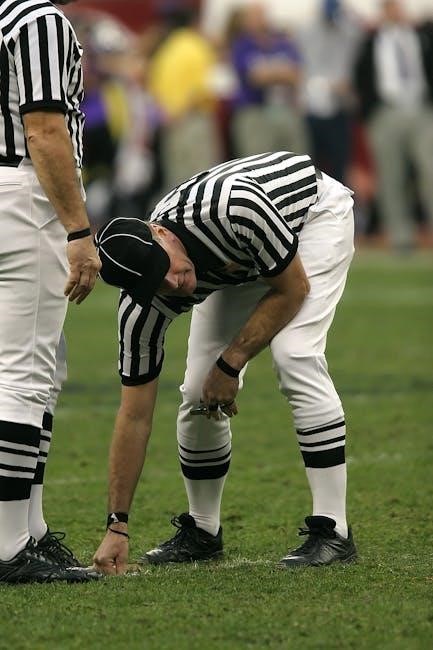
Age Restrictions and Membership Eligibility
Private clubs in Pennsylvania must enforce a minimum age requirement of 21 for membership and bar access, ensuring compliance with state liquor laws and regulations.
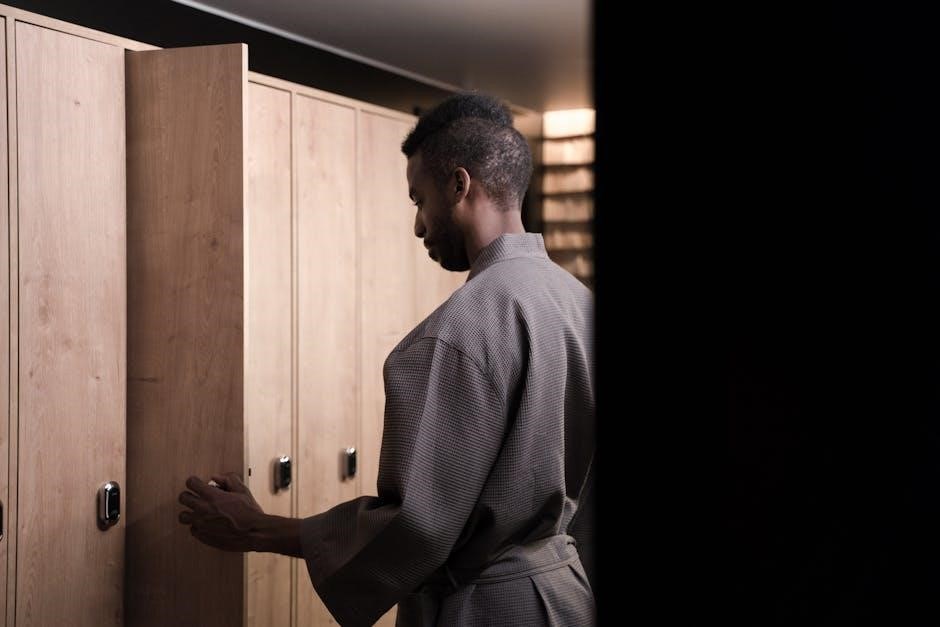
Minimum Age Requirements for Club Membership
In Pennsylvania, private clubs must adhere to a minimum age requirement of 21 years for membership eligibility. This rule ensures compliance with state liquor laws and regulations, specifically targeting the legal drinking age. Clubs are prohibited from allowing minors to access areas where alcohol is served, such as bars or lounges. Failure to enforce this regulation can result in penalties, including fines or license suspension. Additionally, clubs must verify the age of members and guests through valid identification to maintain compliance.
Rules for Minors on Club Premises
Minors are generally prohibited from entering areas where alcohol is served in Pennsylvania private clubs. Clubs must ensure that individuals under 21 do not access bars, lounges, or other restricted spaces. Minors may only be present in designated non-alcohol service areas, provided they are accompanied by a legal guardian. Clubs are required to enforce age verification measures to prevent underage access. Failures to comply can result in penalties, including fines or license suspension. Proper supervision and clear policies are essential to maintain compliance with state liquor laws and regulations.
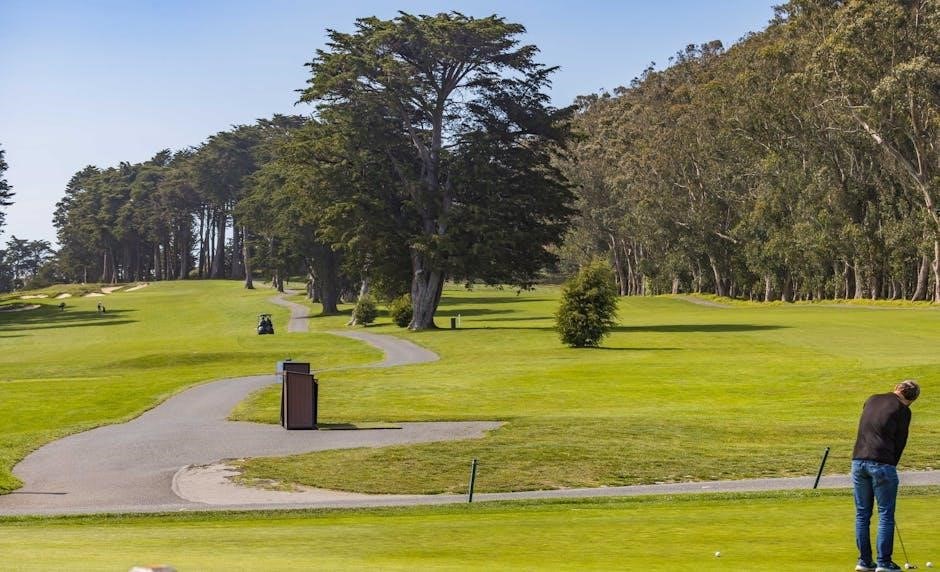
Prohibited Activities in Private Clubs
Illegal gambling, underage drinking, and non-compliance with PLCB laws are strictly prohibited in Pennsylvania private clubs, ensuring a safe and regulated environment for members.
Illegal Gambling and Other Restricted Practices
Illegal gambling and other prohibited activities are strictly enforced against in Pennsylvania private clubs. The PLCB prohibits any form of unlawful gambling within club premises, ensuring compliance with state laws. Clubs must adhere to regulations regarding alcohol service, including restrictions on serving minors and maintaining proper records. Violations can lead to severe penalties, fines, or even license revocation. Additionally, clubs are required to follow operational rules, such as restricted hours for alcohol service and proper member conduct, to maintain a safe and regulated environment for all patrons.
Membership Dues and Financial Obligations
Pennsylvania private clubs must manage membership dues and financial obligations responsibly. Clubs are required to charge and collect dues from all members in accordance with their bylaws. Financial records must be maintained accurately, ensuring transparency and accountability. Clubs must operate for the mutual benefit of all members and hold regular meetings to discuss financial matters. Additionally, clubs must comply with PLCB rules regarding catering records and health licenses if applicable. Proper financial governance ensures the sustainability and legality of club operations, benefiting both members and the club as a whole.
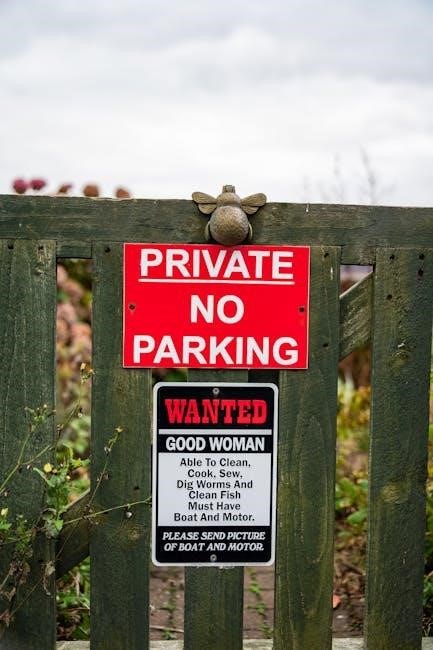
Events, Tournaments, and Special Functions
Pennsylvania private clubs must adhere to specific regulations when hosting events, tournaments, or special functions. These events must comply with PLCB rules, prohibiting unlawful gambling or activities associated with the event. Clubs are required to maintain proper documentation and ensure all events align with state laws and their bylaws. Additionally, clubs must secure necessary permits and licenses, particularly for catering or special functions. Proper planning and adherence to these regulations ensure events are conducted legally, safely, and in accordance with club governance standards.
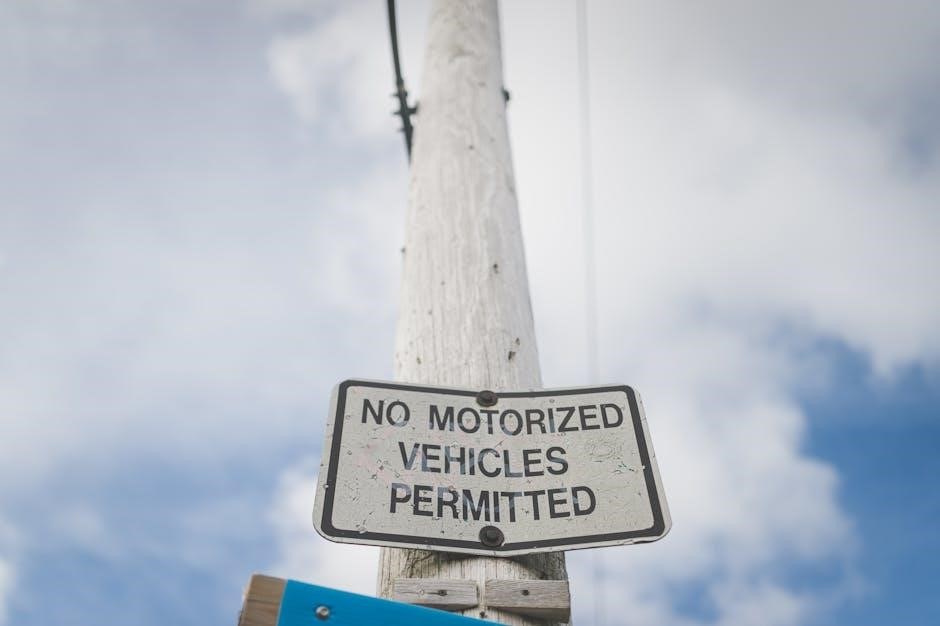
Health and Safety Regulations
Pennsylvania private clubs must comply with health and safety regulations to ensure a safe environment for members and guests. Clubs are required to maintain proper sanitation and food handling practices, particularly if they provide catering services. A valid Health License is mandatory for clubs offering food and beverages. Additionally, clubs must adhere to fire safety codes, ensuring emergency exits are accessible and well-marked. Proper waste disposal and cleanliness in bar and kitchen areas are also enforced. Non-compliance with these regulations can result in penalties, emphasizing the importance of strict adherence to health and safety standards.
Penalties and Enforcement Mechanisms
Non-compliance with Pennsylvania private club rules and regulations can result in significant penalties, including fines, license suspension, or revocation. The PLCB rigorously enforces these measures to ensure adherence to state liquor laws and club bylaws. Repeat violations may lead to escalated penalties, potentially harming the club’s operations and reputation. Enforcement mechanisms include regular inspections, audits, and legal actions to address non-compliance. Clubs must maintain strict compliance to avoid these penalties and uphold their legal standing in the state. The PLCB serves as the primary authority in enforcing these regulations to protect public health and safety.
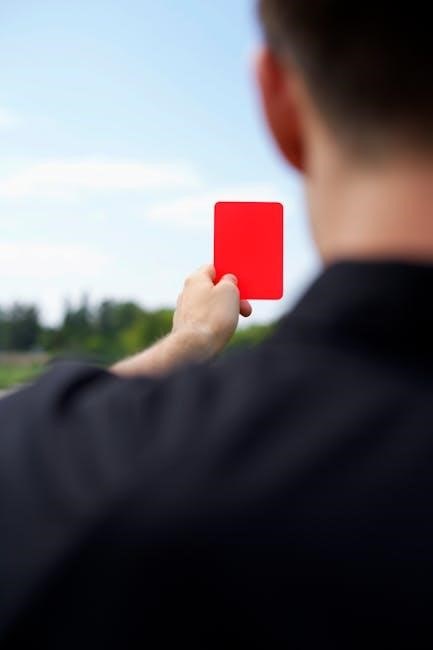
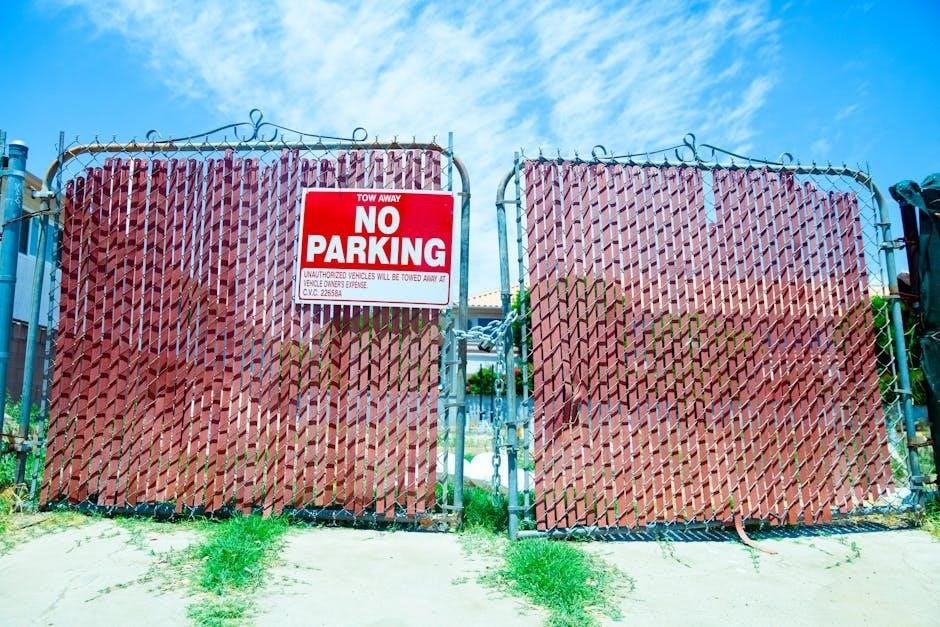
No Responses